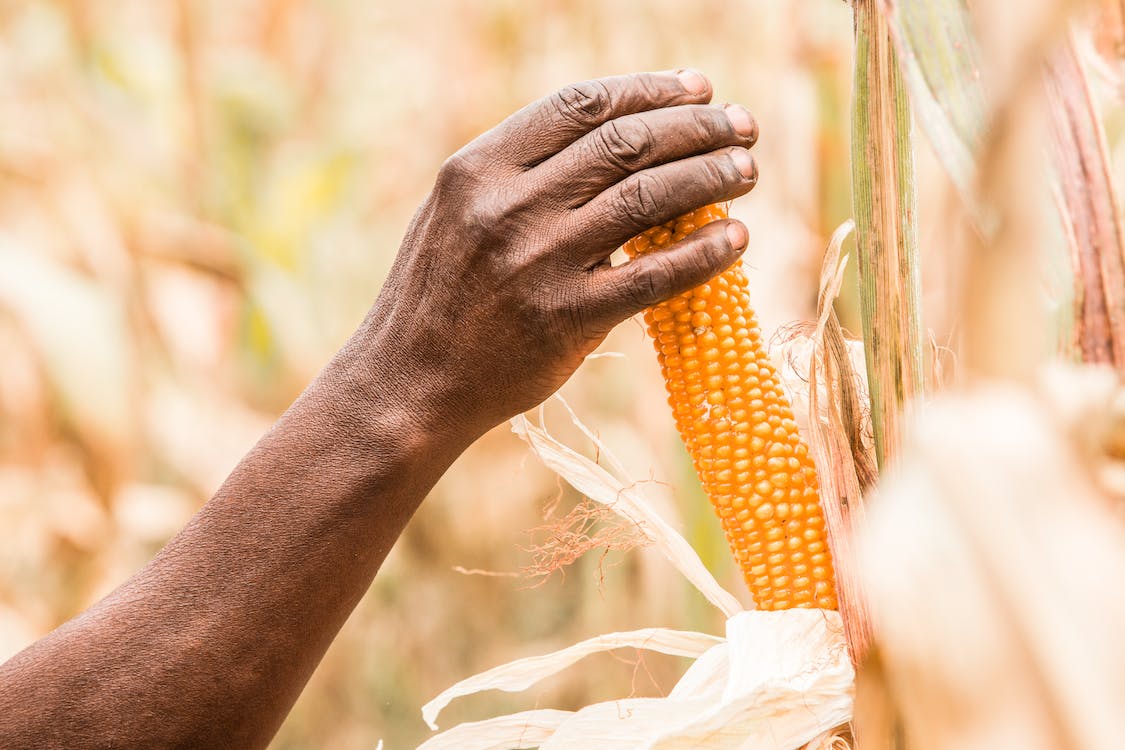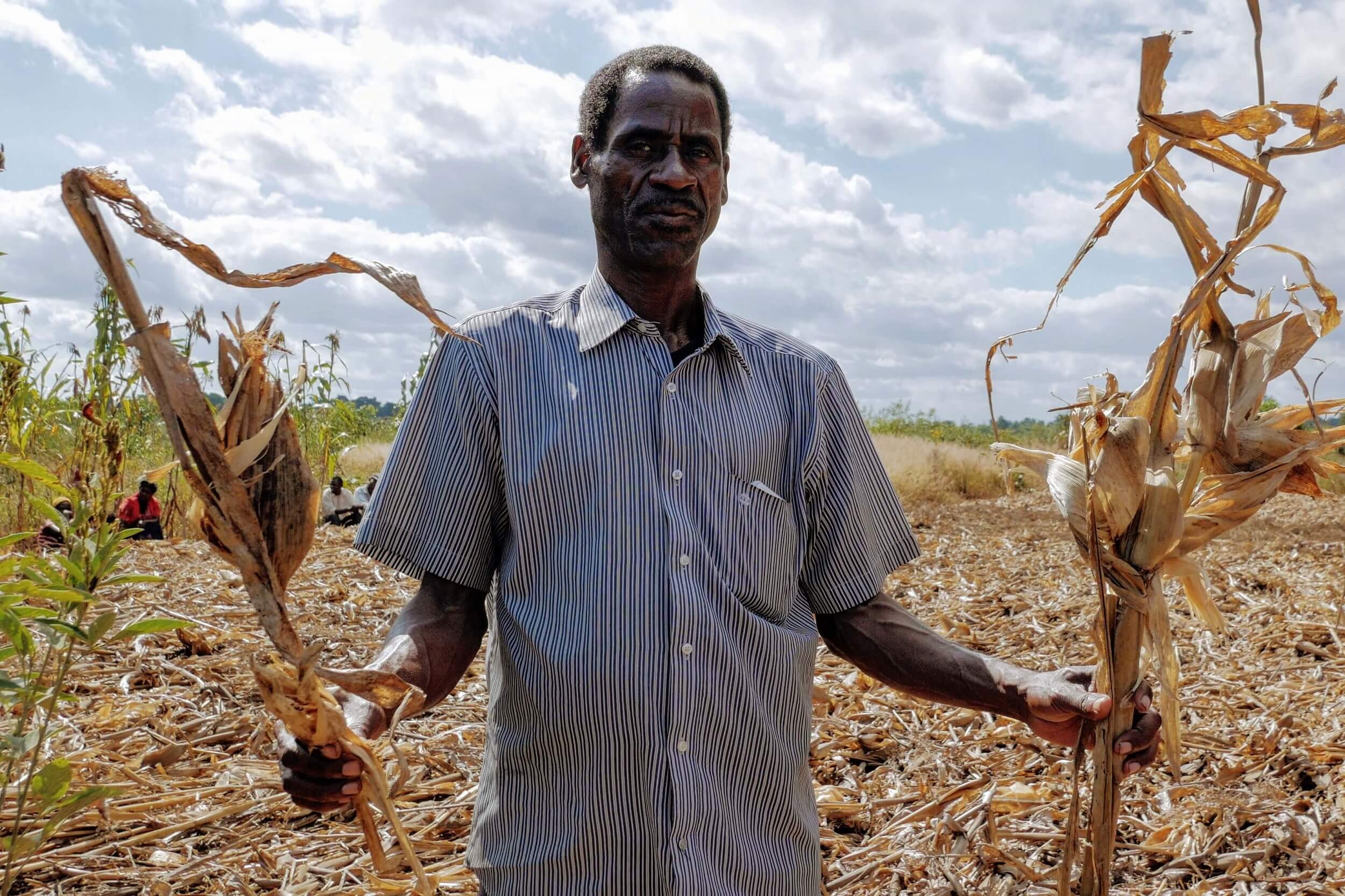Rev Lloyd Chizenga leads New Life Christian Church and has been an APF partner for nearly 40 years. With funding from Operation Agri and support from APF, he teaches conservation agriculture with a gospel message in villages across southern Malawi. Here’s Lloyd’s latest update.
I am Pastor Lloyd Chizenga, General Director of New Life Christian Church, a network of about two hundred churches across southern and central Malawi. We also have some congregations in Mozambique. With my small team from Blantyre, we continue to use New Life’s strong reputation in rural communities to provide training on conservation agriculture to village groups.
The last few years have been very tough in Malawi. Erratic weather conditions driven by climate change are becoming a problem all over the world, but especially here in Malawi we are seeing huge impacts. In 2022, Tropical Storm Ana destroyed many crops, left thousands homeless and damaged infrastructure. Then early this year, Cyclone Freddy hit. This affected the Shire Valley area very badly as flooding and landslides washed away many homes. Six months’ worth of rain fall fell in just six days, ripping up roads and drowning farms. The government estimated that over one thousand people lost their lives in southern Malawi during the storm.
When you look at the annual statistics, you might see normal amounts of rain for the year and think everything is fine, but this is not the case at all. The rain used to be predictable and reliable. Now we are finding that we get all of it in torrential storms and then nothing in longer and hotter dry periods. We blame climate change for these shifts which have contributed to a serious decline in food availability.
This year’s maize harvest saw a fifty percent decline in some areas and a corresponding price spike. Prices in Nsanje, in the far south of the country, for example, shot up 400 percent during March. This might sound profitable for a farmer looking to sell surplus crops, but most smallholders cannot do this. They rely on high interest loans to buy food for their families until they harvest, but without crops to sell and with debts to pay, life becomes very precarious.
Changing weather patterns are just one of the reasons we continue to work so hard on our conservation agriculture training programme. Soil degradation is another challenge. Where fields are not protected with a good mulch cover, heavier rainfall and longer, hotter dry periods mean that soils are being washed or blown away. The Shire River basin is a hotspot for this problem. While soil erosion is a challenge for an individual farmer, it is causing knock on problems across the entire country. Nearly all our power is generated from hydroelectric power stations on the Shire River and Lake Malawi but the sediment running off the fields is reducing their capacity and means power cuts.


These are just some of the reasons that the training programme we provide in villages is even more important now than when we started in 2016. This year, with further funding from Operation Agri and support from African Pastors Fellowship, we are working with a new cohort of villages in Nsanje, Chikwawa, Blantyre Rural, Ntcheu, Balaka, Mangochi and Machinga Districts.
The training we give has adapted with our experience and the changing pressures on farmers. We still focus on good soil management, such as creating planting stations rather than following the traditional practice of earthing-up which damages soil structure, and mulching. As the price of fertiliser has doubled, knowledge about making thermal compost is a lifeline.
Now, however, we also promote ‘climate smart’ agriculture by teaching about trees like the acacia tree Faidherbia albida which add fertility to the soil and protect crops. We include more about managing farm finances, helping farmers to think carefully about borrowing, saving and marketing surplus crops. We also think it is important to create opportunities for communities to come together and discuss the traumas they have faced over the last few years and begin to heal.
One of the most exciting aspects of the training is that we now include teaching about animal care. This is because farmers who follow the training make a profit which they invest. Livestock provide an excellent income stream as not only can the young be sold but they also produce manure for compost. One important aspect of our training is linking our faith and farming practices to our responsibility to care for creation. It is so important that Christian farmers know that caring for the land God has given them is central to their faith.
Over the past seven years, the Growing Greener project has seen so many changes in the lives of people and communities involved. As soil fertility and yields have grown, lives in the villages have changed.
We see food security, livestock purchased, school fees paid, and homes roofed with iron sheets. We are especially grateful for the additional support we received to help farmers in the Lower Shire Valley buy seed to replace the crops lost to flooding after Cyclone Freddy.
Thank you for all your support.
Lloyd

